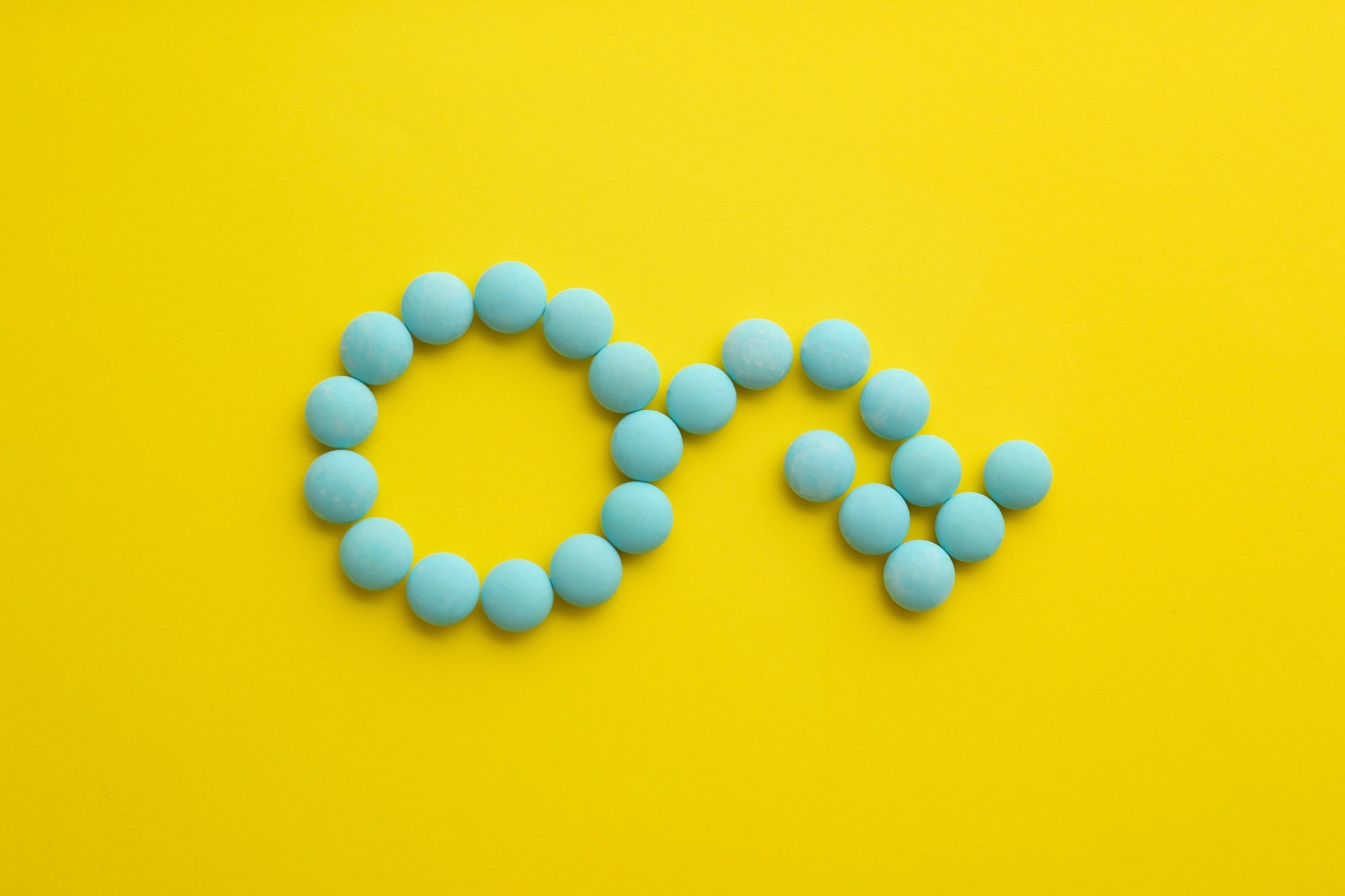Review suggests that choosing whole plant foods over processed or animal-based options could lower the risk of erectile dysfunction, offering men a natural path to better vascular and sexual health.
 Plant-Based Diet and Erectile Dysfunction: A Narrative Review. Image Credit: New Africa / Shutterstock
Plant-Based Diet and Erectile Dysfunction: A Narrative Review. Image Credit: New Africa / Shutterstock
In a recent review article published in The Journal of Nutrition, Mariana del Carmen Fernández-Fígares Jiménez from the University of Granada, Spain, reviewed the evidence on how plant-based diets emphasizing minimally processed whole plant foods could affect erectile dysfunction (ED) through improvements in cardiometabolic health and endothelial function. She found that these diets could help improve or prevent ED by supporting healthier blood vessel function, reducing arterial stiffness, lowering harmful blood markers, and increasing nitric oxide production.
Background
ED means having ongoing trouble getting or keeping an erection firm enough for sex. It affects millions of men worldwide, and the number is expected to reach 322 million by 2025. ED can have psychological, physical, or mixed causes.
One common physical cause is arteriogenic, which occurs when the inner lining of blood vessels (the endothelium) does not function properly. Normally, healthy blood vessels make nitric oxide, which relaxes muscles and allows blood to flow in. However, if the body makes less nitric oxide or has more harmful substances that cause tightening of the blood vessels, then blood flow to the penis drops, causing ED.
Doctors can measure signs of poor endothelial function, such as reduced flow-mediated dilation (FMD) and decreased endothelial progenitor cells (EPCs). Risk factors like smoking, high blood pressure, diabetes, and high cholesterol damage the endothelium and raise ED risk. Because penile blood vessels are narrower than other arteries, they show damage earlier than heart arteries, so ED can signal the presence of hidden cardiovascular disease (CVD).
Eating whole plant foods such as fruits and whole grains helps prevent CVD and related problems. These foods retain all edible parts (like fiber in fruits or bran in grains), unlike processed plant foods (e.g., fruit juices or refined grains). However, current plant-based diet indices (like PDI or hPDI) do not consistently distinguish between whole and processed plant foods.
Studies have shown that plant-based diets can lower cholesterol, reduce inflammation, and prevent artery blockage. Therefore, focusing on whole plant foods could help protect blood vessel health and potentially prevent or improve ED by addressing the underlying vascular issue.
Possible Mechanisms
The researcher discussed multiple ways in which eating a diet based mainly on whole plant foods may help improve or prevent ED by protecting blood vessel health and boosting nitric oxide availability.
First, lowering low-density lipoprotein (LDL) cholesterol is crucial. High LDL cholesterol damages blood vessels and worsens ED by reducing nitric oxide production and increasing harmful molecules such as free radicals.
Replacing animal proteins and fats with plant proteins, soy, nuts, and fiber-rich foods lowers LDL cholesterol and inflammation, with the Portfolio Diet (rich in viscous fiber, nuts, and plant sterols) matching statin effectiveness. Unlike animal foods, whole plant foods have more fiber and healthy unsaturated fats, which help remove cholesterol from the body.
Second, whole plant foods lower advanced glycation end products (AGEs). AGEs, found mostly in animal foods and high-heat-cooked meats, stiffen blood vessels and inhibit nitric oxide production, which can harm erections. A plant-based diet cuts AGE intake by over 75% and helps control blood sugar, further limiting AGE formation. Whole plant foods also contain phytic acid, which inhibits AGE formation.
Third, trimethylamine N-oxide (TMAO), a gut-derived compound from animal foods like red meat and eggs or preformed in fish/seafood, damages blood vessels by harming EPCs and lowering FMD, a measure of vessel flexibility. Plant-based eaters have fewer TMA-producing gut bacteria and produce much less TMAO.
Fourth, eating animal fats or oils causes spikes in blood triglycerides after meals, which temporarily stiffens arteries and reduces NO. Whole-plant fats from nuts and seeds do not have this effect and, in fact, even protect vessel function due to their healthy fats, fiber, and antioxidants.
Fifth, whole plant foods naturally provide nitric oxide-boosting nutrients like nitrates (from beetroot and leafy greens), L-arginine (from seeds and nuts), L-citrulline (from watermelon), and polyphenols (from cocoa, vegetables, and fruits). These compounds increase nitric oxide levels, reduce inflammation, and enhance blood flow, all improving erectile function.
Sixth, high homocysteine levels, linked to poor blood flow and ED, drop with more B vitamins like folate, B6, and B12. Plant foods provide folate and B6, but vitamin B12 must be supplemented on a plant-only diet to avoid deficiency.
Finally, excess salt from processed animal and plant foods, as well as added table salt, stiffens arteries and raises vasoconstrictors like endothelin-1. A whole plant foods diet, naturally low in sodium, reduces salt intake, lowers endothelin-1, and improves vessel flexibility, further supporting erection health.
Conclusions
This review concludes that greater adherence to a plant-based diet focused on whole, minimally processed plant foods is associated with a lower risk of ED, although no randomized trials have specifically examined vegan or vegetarian diets in relation to ED outcomes, a key research gap. More RCTs are needed to confirm causality.
Observational evidence suggests that consuming more whole grains, legumes, nuts, fruits, and vegetables, and fewer animal and non-whole plant foods, can improve endothelial health, reduce arterial stiffness, and support healthy erections. Notably, studies in young men show weaker associations, likely due to less advanced vascular damage.
Whole plant foods provide important nitric oxide precursors like nitrates, L-arginine, and polyphenols, and help lower harmful blood markers such as LDL cholesterol, TMAO, AGEs, triglycerides, inflammatory vasoconstrictors, and homocysteine (when vitamin B12 is supplemented).
Together, these effects protect blood vessel function and enhance blood flow to the penis. Overall, diets rich in whole plant foods are also consistently associated with lower risks of premature death, kidney disease, heart disease, cancer, and diabetes. Therefore, prioritizing whole plant foods may benefit both erectile function and overall health.